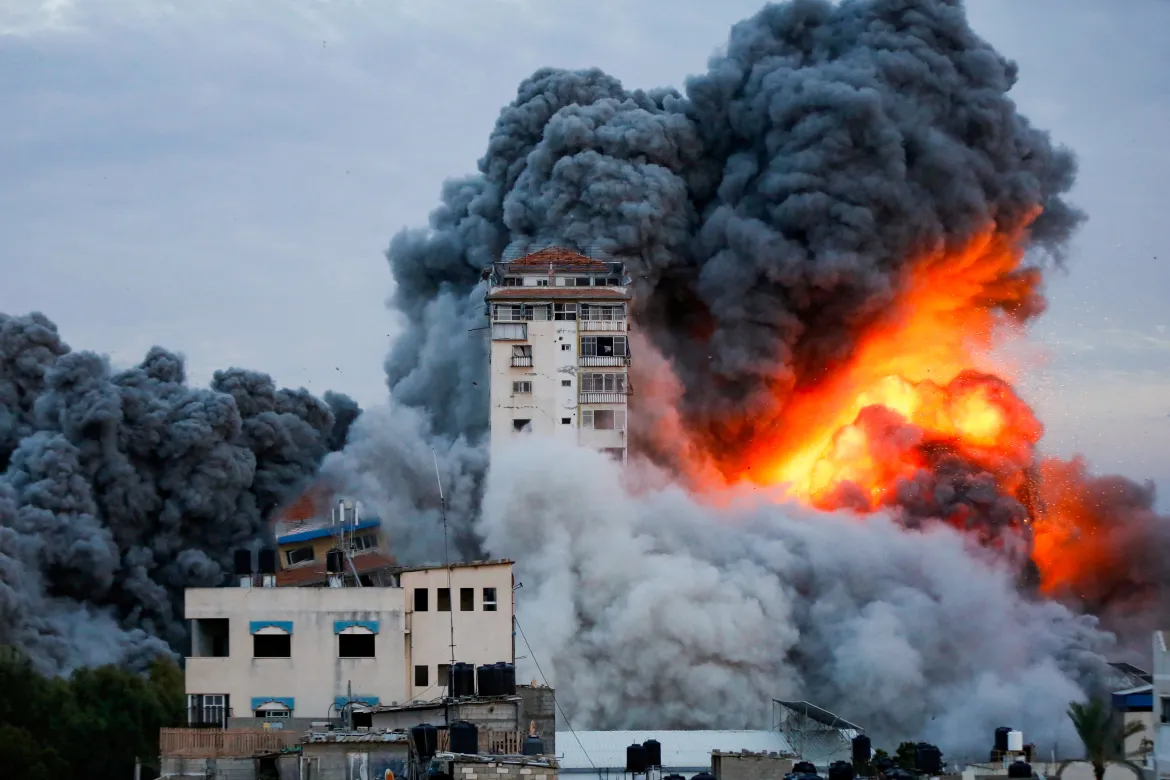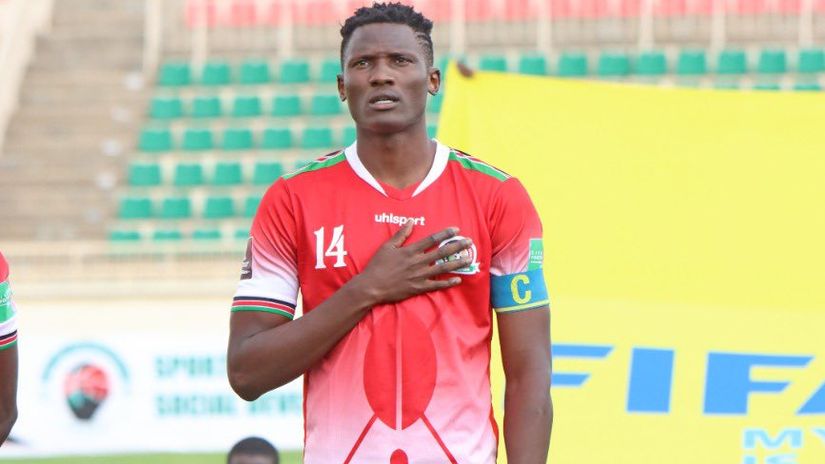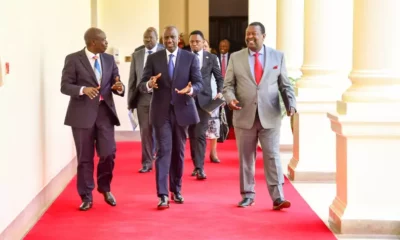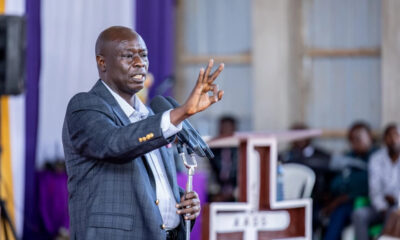This Week
The Escalation of Conflict: A Closer Look at the Israel-Palestine Crisis

In a sudden escalation of tensions, the Palestinian armed group Hamas launched “Operation Al-Aqsa Flood” against Israel, marking the most serious escalation since the 11-day war between Israel and Hamas in 2021. The operation saw Hamas firing a reported 5,000 rockets, with fighters entering Israeli territory.
The attacks occurred on Simchat Torah, a holiday which falls towards the conclusion of the weeklong Jewish festival known as Sukkot, or the Feast of Tabernacles. Rockets were fired as far north as Tel Aviv, and Hamas fighters were reported in southern Israel. Israeli media reported that gunmen had opened fire on passers-by in the town of Sderot.
In response to these attacks, the Israeli army launched “Operation Iron Swords” against Hamas in the Gaza Strip. Medical sources in Gaza reported at least 160 Palestinians killed and more than 1,000 wounded. Israeli health officials reported at least 40 Israelis killed and 750 wounded in Hamas attacks.
Hamas spokesperson Khaled Qadomi told Al Jazeera that the group’s military operation is in response to all the atrocities the Palestinians have faced over the decades. “We want the international community to stop atrocities in Gaza, against Palestinian people, our holy sites like Al-Aqsa. All these things are the reason behind starting this battle,” he said.
This escalation of conflict underscores the volatile nature of the Israel-Palestine situation and highlights the urgent need for diplomatic intervention to prevent further loss of life and destruction. As tensions continue to rise, it remains to be seen how the international community will respond to this crisis.
In the wake this war , President William Ruto of Kenya has taken a firm stance, expressing solidarity with Israel amidst the recent attacks by Hamas. In a statement, Ruto condemned the recent attacks, noting that Kenya unequivocally condemns terrorism and attacks on innocent civilians.
“Kenya joins the rest of the world in solidarity with the State of Israel,” Ruto said. He emphasized that all acts of terrorism and violent extremism are abhorrent, criminal, and unjustifiable, regardless of the perpetrator or their motivations.
Ruto urged the international community to mobilize efforts to hold accountable those responsible for these reprehensible acts of terrorism, including their organizers, financiers, sponsors, supporters, and enablers.
In light of the complex and sensitive security situation in Israel-Palestine, Kenya called for a ceasefire to halt any further military action between Israel and Palestine. Ruto urged both parties to refrain from further attacks and work toward a peaceful resolution to end the conflict. He emphasized the importance of all parties respecting the rights of civilians and abiding by their obligations under international law.
On behalf of the people of Kenya and their government, Ruto expressed his deepest sympathy and sent condolences to the families of all victims. His statement underscores Kenya’s commitment to peace and security in the region amid escalating tensions.
Featured
A Comedian’s Battle: Akuku Danger and His Fight Against Sickle Cell Anemia

In the world of comedy, laughter is the best medicine. But for comedian Akuku Danger, his life off-stage has been anything but a laughing matter. Diagnosed with sickle cell anemia at the tender age of seven, Danger has been fighting a battle that many cannot even begin to comprehend.
Born and raised in Migori, Kenya, Danger’s journey with sickle cell anemia has been fraught with pain and uncertainty. The disease, which causes red blood cells to become misshapen and break down, has been a constant presence in his life.
Despite the severity of his condition, Danger’s spirit remains unbroken. His story is one of resilience in the face of adversity, a testament to his will to live and his determination to bring joy to others through his craft.
The road has not been easy. Several times during his treatment, medics advised his family to prepare for his death. In Migori, medics advised his family to take him back home to die as there was nothing they could do to alleviate his condition. In Nairobi, medics advised his family against admitting him to the Intensive Care Unit (ICU), saying that they should use the money to prepare for his funeral because they were 100% sure he was going to die.
Yet, against all odds, Danger continues to fight. He continues to defy the predictions of his doctors and the limitations of his disease. He continues to bring laughter and joy to audiences, even as he battles a disease that threatens his life.
Danger’s story is a stark reminder of the human spirit’s capacity for resilience. It is a testament to the power of hope and determination in the face of adversity. And it is a call to action for greater awareness and support for those living with sickle cell anemia.
As more information becomes available about Danger’s journey and his ongoing battle with sickle cell anemia, we will continue to provide updates. For now, we stand in awe of his courage and resilience, and we join him in hoping for a future where no one has to fight this battle alone.
Culture
Rigathi Gachagua’s Call for Population Growth: A Strategy for Economic Development

In a recent interview, Deputy President Rigathi Gachagua made a bold statement that has sparked a lively debate. He urged the Kikuyu community in Central Kenya to increase their family sizes as a strategy for economic development.
A Regret and a Call to Action
Gachagua expressed regret over having only two children, a decision he attributes to the influence of Western mentality. He stated, “I was deceived by the white man to only get two children. It’s the stupidity of that era because we were still naive and believed everything the white man said… We were nine in our family and despite our parents being uneducated, they took us to school,”.
In his call to action, Gachagua encouraged families to have more children, hinting at the biblical analogy of “multiply, and fill the Earth”. He stated, “Let people have 5, 6, 7, 8 (children)… God will help you and you will be able to raise them,”.
The Economic Implications
Gachagua believes that a larger population in Central Kenya would lead to increased economic development. He emphasized his determination to end the business of illicit brews in Central Kenya, which he believes was a ploy to reduce the region’s population.
He also expressed concern over Mt Kenya youth who move to the city for work and fail to return home during the census. This results in the region not receiving its rightful share of national resources in terms of population. He urged those who have moved to the city for work to return home during the census.
A Controversial Strategy
While Gachagua’s call for population growth has sparked debate, it also raises important questions about sustainable development. Critics argue that increasing population without adequate planning and resources could lead to overpopulation and strain on resources.
However, Gachagua’s statements reflect a broader conversation about the relationship between population growth and economic development. As this debate continues, it will be interesting to see how these ideas are received and what impact they may have on future policy decisions.
Featured
Football powerhouse neglected in AFCON preparation.

In the realm of football, Nyanza, a region nestled in the western part of Kenya, has long been celebrated as a fertile breeding ground for talented players. Its rich history of producing exceptional athletes is well-documented, yet shockingly, the national government has overlooked this football powerhouse in their preparations for the upcoming Africa Cup of Nations (AFCON), co-hosted by Uganda, Tanzania, and Kenya. This glaring omission sends a disconcerting message of neglect and disregard for Nyanza’s significant contributions to the sport.
Nyanza’s reputation for producing footballers of great skill, determination, and passion is well-earned. The region has consistently produced exceptional talent that has shone both locally and internationally. Furthermore, it has been instrumental in driving Kenya’s success in various football tournaments.
However, the national government’s silence on Nyanza’s role in the AFCON preparations is deafening. It suggests a failure to recognize the region’s potential to contribute to the national team’s success in the upcoming tournament. This oversight not only undermines the efforts and dedication of Nyanza’s players but also risks discouraging future generations of football enthusiasts from the region.
The government’s failure to acknowledge Nyanza’s contribution to Kenyan football is not only unjust but also counterproductive to the sport’s growth in the region. By overlooking Nyanza’s potential, they are effectively stunting the development of future football stars and denying Nyanza the opportunity to showcase its talent on Africa’s grandest football stage.
It is imperative that the national government acknowledges Nyanza’s football prowess and provides it with the necessary support and recognition it deserves. By doing so, they will not only honor the region’s rich football heritage but also foster a culture of inclusivity and encouragement for aspiring players nationwide. It is time to rectify this oversight and give Nyanza its rightful place in AFCON preparations.
-

 Football9 months ago
Football9 months agoArteta on Havertz criticism:
-

 Highlights9 months ago
Highlights9 months agoIn the shadow Of Conflict,President Ruto Visits Nyanza.
-

 Featured9 months ago
Featured9 months agoFootball powerhouse neglected in AFCON preparation.
-

 Culture9 months ago
Culture9 months agoRigathi Gachagua’s Call for Population Growth: A Strategy for Economic Development
-

 Sports8 months ago
Sports8 months agoArsenal’s Five-Star Performance
-

 Football8 months ago
Football8 months agoThe Showcase Africa: A Platform for Young Footballers to Realize Their Dreams
-

 Featured9 months ago
Featured9 months ago“Unstoppable Dr. Eve:Kabondo Kasipul’s Second Time Triumphs”
-

 Must Read9 months ago
Must Read9 months agoPresident Ruto Tours in Nyanza





